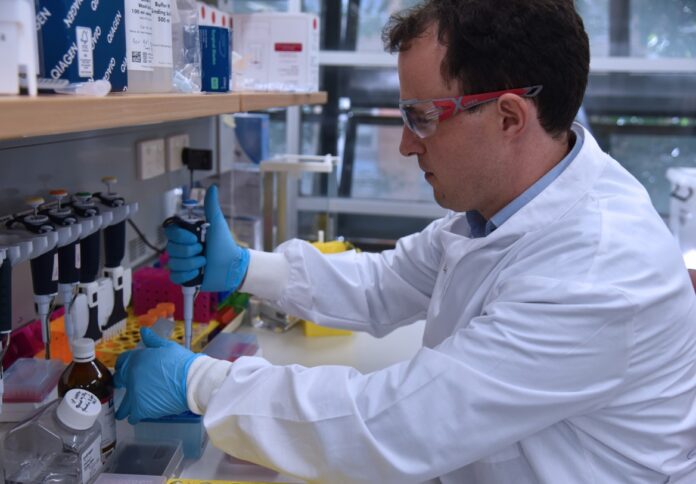
The University of Queensland (UQ) is set to revolutionise cancer treatment with the establishment of a new facility dedicated to producing personalised cancer vaccines, the university said in a media release.
Located at UQ’s Australian Institute for Bioengineering and Nanotechnology (AIBN), this state-of-the-art lab will integrate cutting-edge equipment and expertise to design, manufacture, and deliver innovative mRNA cancer vaccines tailored to individual patients.
Supported by a $3.3 million grant from the Medical Research Future Fund’s (MRFF) National Critical Research Infrastructure program, this hub will empower the local research community to develop vaccines that meet the specific treatment needs of each patient.
Dr Seth Cheetham, Deputy Director of AIBN’s BASE facility, highlighted the transformative potential of the new lab.
“Personalised mRNA cancer vaccines are now being used to train the body’s immune system to recognize and eradicate cancer cells,” Dr Cheetham said.
“Despite the huge potential, Australian researchers haven’t had the necessary infrastructure to build these vaccines, leading to a critical gap in the local drug development pipeline.”
“This lab changes that, with a leading team of investigators in a purpose-built space, working with local industry and academics to progress a range of high-quality mRNA cancer vaccine candidates from design through to preclinical evaluation, with the aim of enabling future clinical trials.”
The mRNA cancer vaccine hub is expected to be operational at BASE by late 2024.
Since its launch in 2021, BASE has established itself as Australia’s leading provider of mRNA for research and pilot studies, supplying over 300 experimental-grade vaccines to academic and industry partners.
“As well as the potential impacts on patient health, mRNA cancer vaccines represent a $7 billion opportunity over the next decade,” Dr Cheetham added.
“This is a rapidly expanding industry encompassing researchers, biotech start-ups, and multinational pharmaceuticals, and AIBN and BASE will now be at the centre of a range of promising new treatment options.”
The new lab is one of four UQ projects funded in the latest MRFF grant round. This funding builds on the $6.6 million awarded to BASE in 2023 to enhance clinical mRNA production capabilities.
AIBN Director Professor Alan Rowan emphasised the hub’s role in complementing Australia’s existing research strengths in oncology and establishing AIBN as a leader in therapeutics and personalised medicine.
“Governments and society want sustainable innovation that enables high-quality research and delivers translatable outcomes,” Professor Rowan said.
“The mRNA cancer vaccine hub is the latest example of how AIBN combines world-class infrastructure and technical expertise to bridge the gap between research and clinical development.”
The five-year program will also bring together partner investigators from UQ, QIMR-Berghofer, Mater Research, Garvan Institute of Medical Research, and Queensland Children’s Hospital, ensuring a collaborative approach to advancing cancer treatment.




















